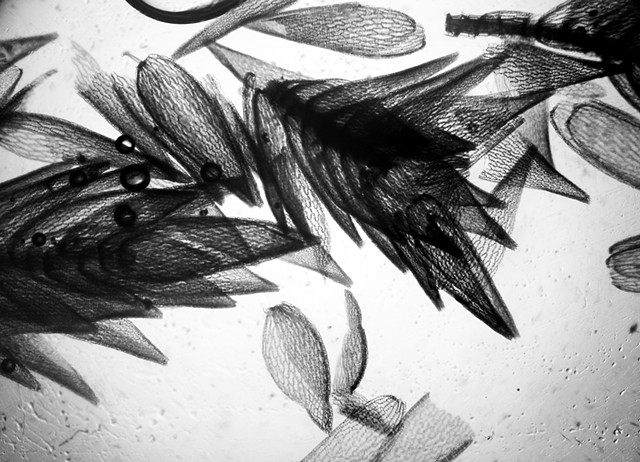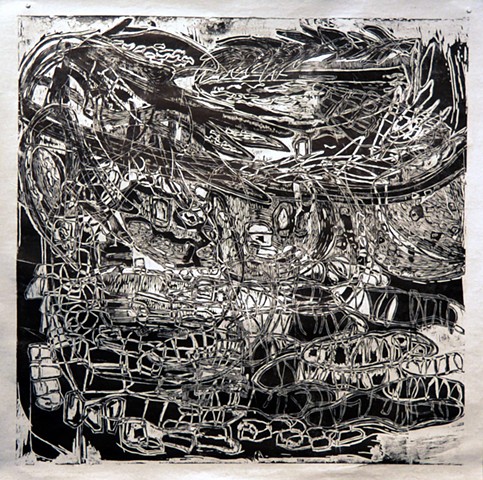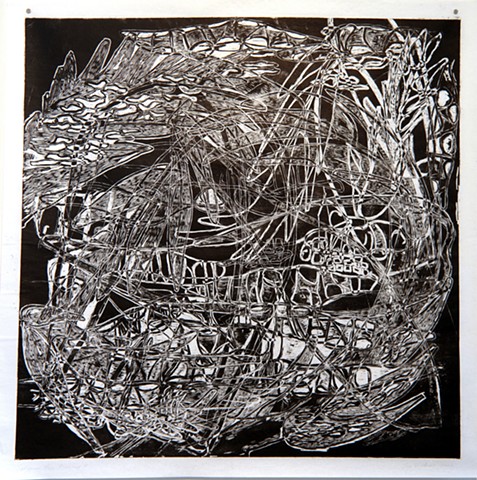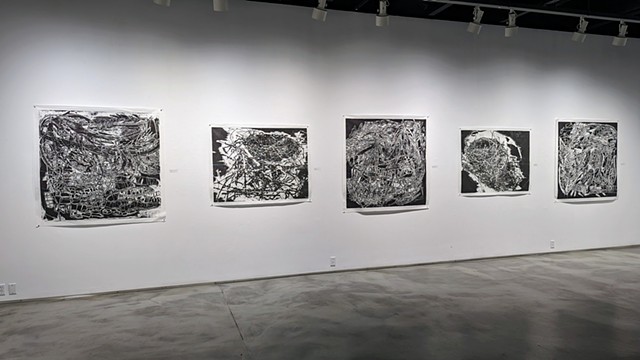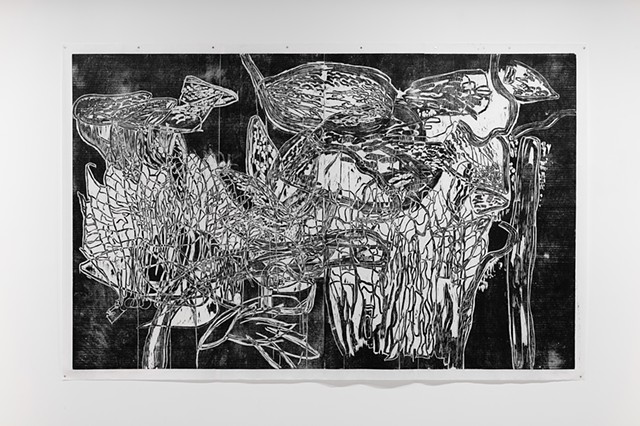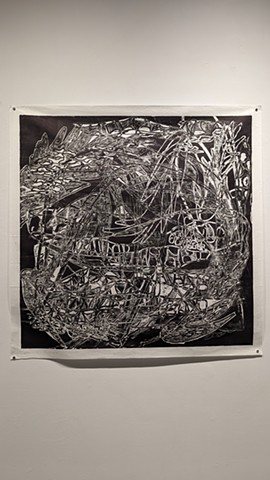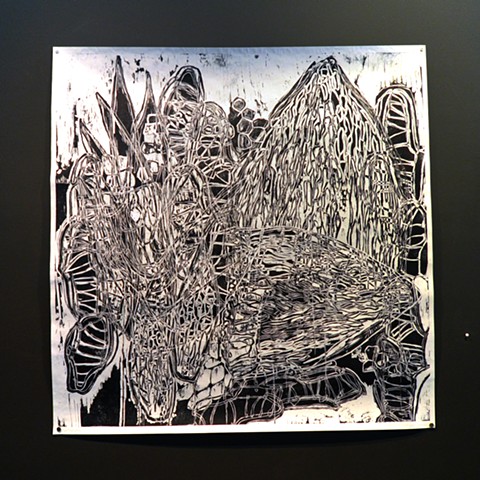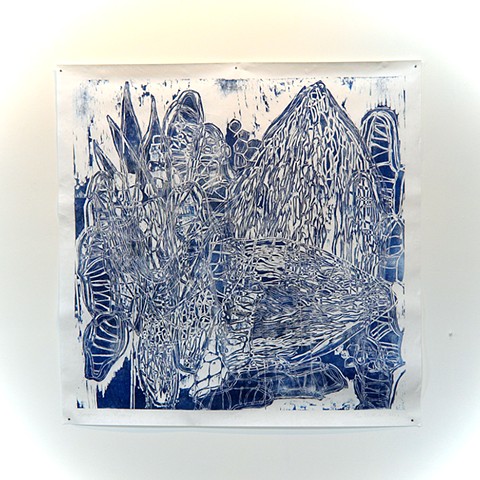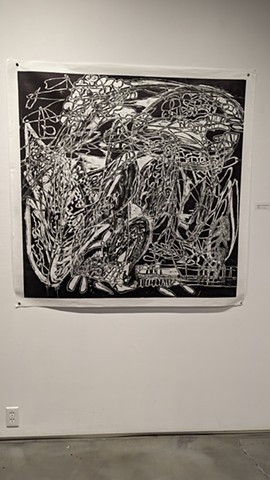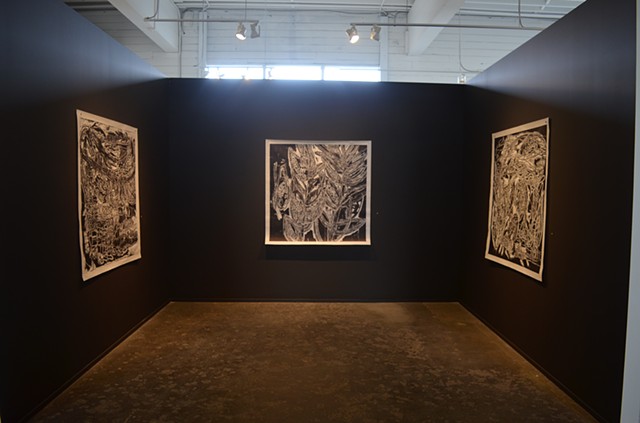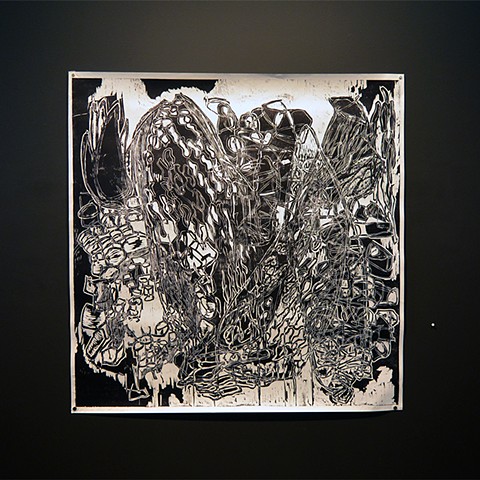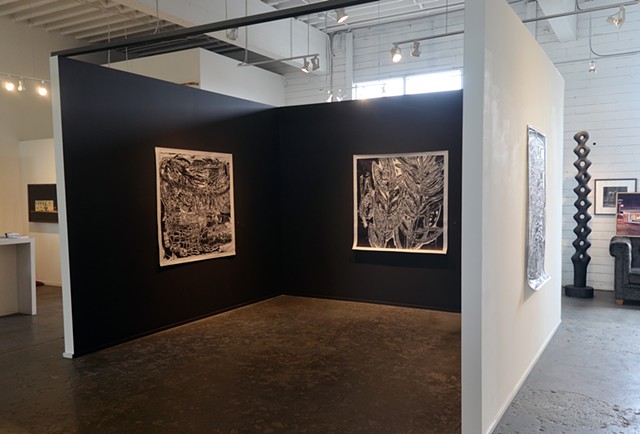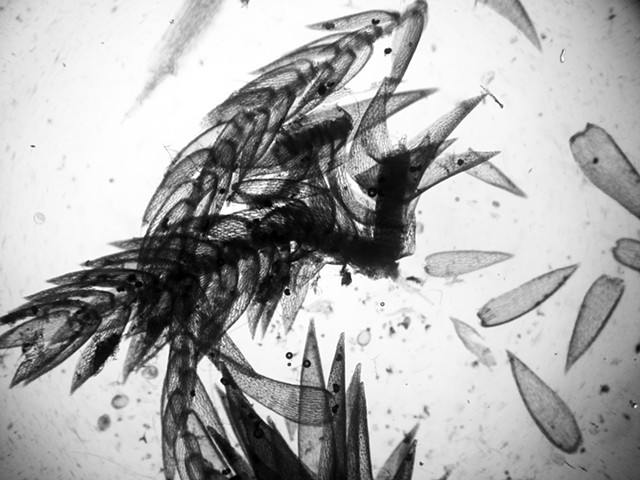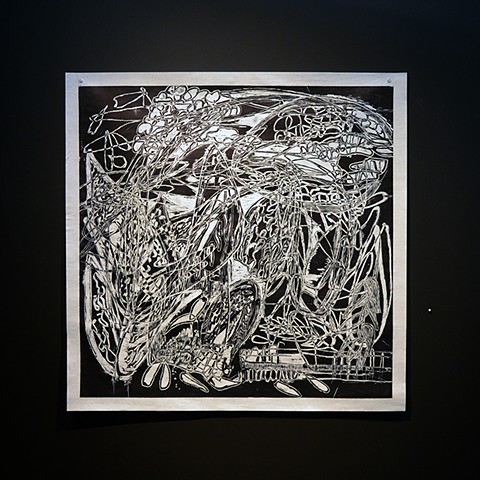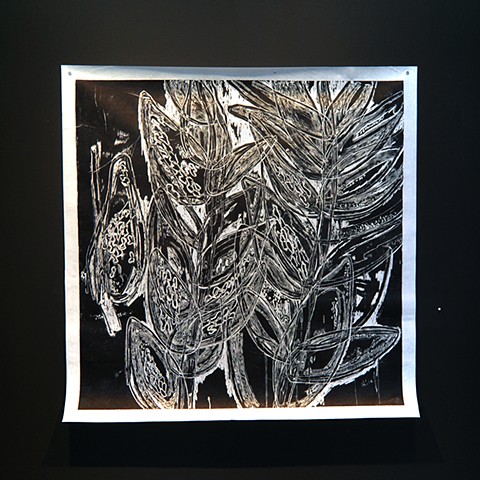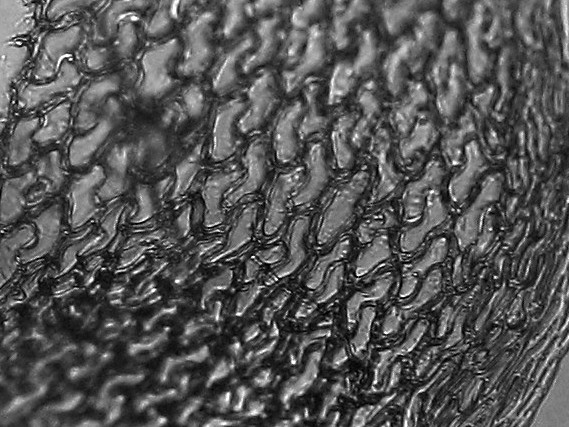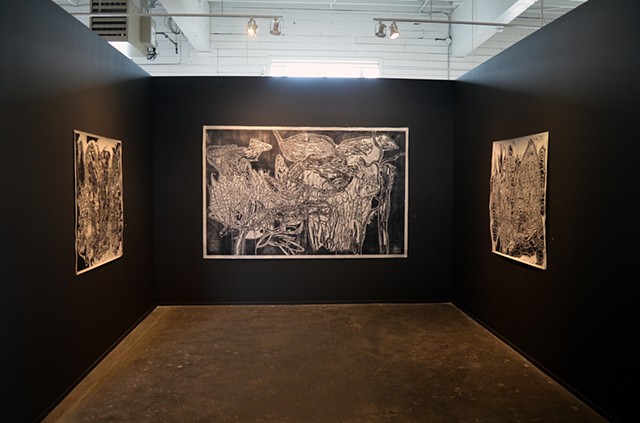Sphagnum Microscopy
In 2022 I made a body of woodcuts that examined Sphagnum mosses, an ecologically important group of plants that create peatlands. Also known as peat moss, these plants decompose slowly, accruing massive reserves of undecomposed biological matter over millennia. Peatlands sequester even more atmospheric carbon than do forests, and so these tiny plants could play a major role in helping to mitigate human-caused climate change. They also have unique botanical structures. I carved an 8-foot long piece as the first in this series, followed by several square-format pieces, all of which focus on the anatomy of Sphagnum leaves and their prominent hyaline (water-holding) cells from several common species in northern Alberta. The samples I looked at were collected by a bryologist (a scientist who studies mosses, liverworts, and hornworts) with whom I was collaborating.
This series was shown together in the show Field Notes II at Christine Klassen Gallery, Calgary, Alberta
Saturday, June 4, 202210:00 a.m. to Saturday, July 9, 20225:00 p.m.
